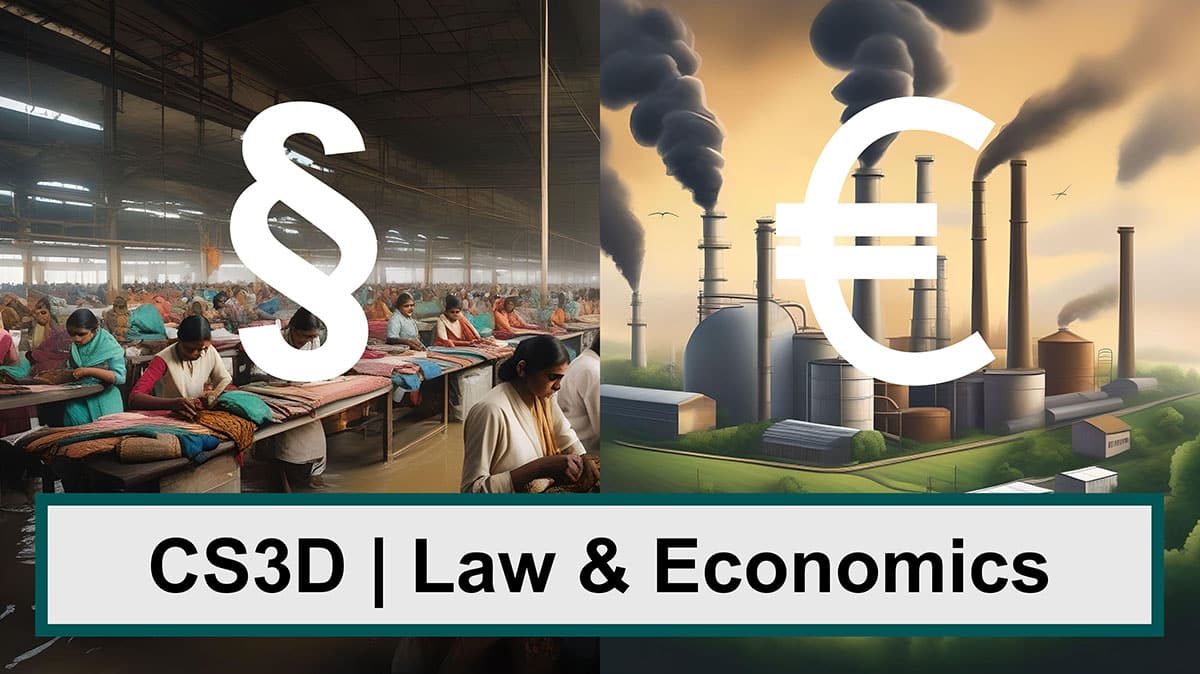The Corporate Sustainability Due Diligence Directive (CS3D), adopted by the European Union in June 2024, represents an ambitious attempt to address two pressing global issues: climate change and human rights violations. This directive mandates large corporations operating within the EU to monitor their supply chains, both domestically and internationally, for environmental and human rights violations. The CS3D’s innovative approach transforms these corporations into gatekeepers, similar to strategies employed in regulating online platforms and financial intermediaries.
This presentation conducts a comprehensive analysis of the CS3D through the lens of Law & Economics (L&E), exploring the incentives it creates and its potential economic impacts. Our investigation reveals several key findings. First, while the CS3D addresses market failures related to externalities, it may inadvertently increase transaction costs and create new market power imbalances. Second, the overlap between monetary fines and civil liability in the directive could lead to both over-compliance and under-compliance. Third, we identify potential unintended consequences, including chilling effects on market participation, increased consumer prices, and reduced competition. Furthermore, we examine how the CS3D might backfire, potentially harming those it aims to protect by reducing employment opportunities in developing countries. We also address concerns of ‘legal colonialism’ and explore various ways the directive could be circumvented. By applying behavioural economics insights, we offer additional perspectives on the CS3D’s potential effects.
This analysis is crucial not only for EU policymakers considering updates to the CS3D or national implementation strategies but also for lawmakers in other jurisdictions contemplating similar regulations. Our goal is to illuminate the complex incentives created by the CS3D and assess whether they are likely to yield the desired outcomes.
